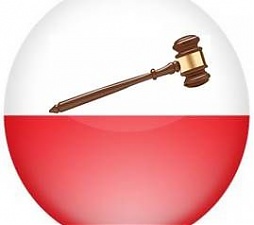Analytics, EU – Baltic States, Law and Regulations, Legislation
International Internet Magazine. Baltic States news & analytics
Thursday, 25.04.2024, 03:01
EU values and the rule of law in Poland: Commission’s reaction
 Print version
Print version |
|---|
The Commission expressed some concerns over recent developments in Poland: it requested information from the Polish authorities, concerning the situation around the Polish Constitutional Tribunal and the amendments to media law.
For example, the Commission acknowledged that the Constitutional Tribunal took decisions which were not currently being complied with by other institutions of the State; and there are measures that have been taken by the newly-elected Polish legislature that affect its functioning.
The Commission decided (Brussels, 13 January 2016) that it will carry out a preliminary assessment on this matter under the Rule of Law Framework. This step is taken in light of the currently available information, in particular the fact that binding rulings of the Constitutional Tribunal are currently not respected, which the Commission believes is a serious matter in any rule of law-dominated state.
The Commission wants objectively assess the situation in more depth and start a dialogue with Polish authorities, without prejudging any possible next steps. The Commission wants to make sure that the rule of law is preserved and help find solutions if necessary.
The Commission acknowledged that recent reform in the country’s media law also raises issues relating to freedom and pluralism of the media. The concept of the EU’s rule of law, as defined in the EU Rule of Law Framework, requires the respect for democracy and for fundamental rights in the member states; there can be no democracy and respect for fundamental rights without respect for the rule of law and vice versa.
The EU’s approach is that fundamental rights are effective only if they are justifiable, i.e. when they can be enforced in courts. Democracy is protected if the fundamental role of the judiciary, including constitutional courts, can ensure freedom of expression, freedom of assembly and respect of the rules governing the political and electoral processes.
In this case again the Commission has sent a letter to Polish authorities inviting them to start a dialogue on these issues. The Commission explores a cooperative approach with its task and role as a guardian of the Treaty: it starts a dialogue with the member state if there is something that needs to be discussed. Commission’s aim is to solve the emerging issues through polemic, understanding to solve issues in a rational way based on EU’s legal obligations.
Reference: Commission press release; speech by the Commission first President F. Timmermans at the College meeting, 13 January 2016. In:
http://europa.eu/rapid/press-release_SPEECH-16-71_en.htm?locale=en








 «The Baltic Course» Is Sold and Stays in Business!
«The Baltic Course» Is Sold and Stays in Business!

